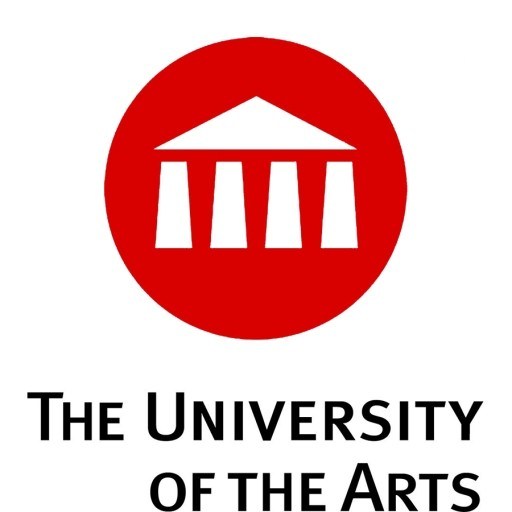Photos of university / #uofpenn
The Bachelor of Arts in Law and Technology at the University of Pennsylvania is an innovative interdisciplinary program designed to prepare students for the rapidly evolving landscape of law, technology, and society. This unique degree combines rigorous academic coursework in legal studies, technological innovation, and social sciences, offering a comprehensive understanding of how emerging technologies influence legal frameworks and societal norms. Students will explore topics such as cybersecurity, data privacy, intellectual property, digital rights, and the ethical implications of technological development. The program emphasizes critical thinking, analytical skills, and practical knowledge, equipping graduates to navigate and shape the future of legal policies and technological advancements. Through a combination of coursework, hands-on projects, internships, and seminars led by leading scholars and industry experts, students gain real-world insights into the challenges and opportunities at the intersection of law and technology. The curriculum encourages interdisciplinary collaboration, fostering skills in research, policy analysis, and problem-solving. In addition to core courses, students have the flexibility to specialize in areas like information law, digital innovation, or policy analysis, tailoring their education to their career interests. The program also emphasizes ethical considerations and social responsibility, preparing students to address complex legal and technological issues with integrity and foresight. Graduates of the Bachelor of Arts in Law and Technology will be well-equipped for careers in legal practice, technology development, policy-making, or further academic study. With access to Penn’s extensive resources, a vibrant academic community, and strong connections to industry, students are positioned to become leaders in shaping the future of law in a digital age.
The Law and Technology program at the University of Pennsylvania offers a comprehensive interdisciplinary curriculum designed to equip students with a deep understanding of the legal, technical, and policy issues intersecting the fields of law and technology. This innovative program is tailored for students interested in exploring the rapidly evolving digital landscape, including areas such as intellectual property, cyber law, data privacy, cybersecurity, and emerging technological innovations. Students will engage with core legal principles while gaining practical insights into the technological frameworks that underpin modern digital society.
The curriculum integrates foundational coursework in law with advanced modules in technology topics, fostering critical thinking about legal regulation in the context of technological advancement. Participants will study the impact of artificial intelligence, blockchain, internet governance, and digital rights, gaining both theoretical knowledge and practical skills necessary for navigating and shaping the legal responses to technological change. Throughout the program, students have opportunities to participate in experiential learning, including clinics, internships, and collaborative projects with industry partners and governmental agencies.
Faculty members comprising leading legal scholars and technology experts guide students through engaging classes, seminars, and workshops that promote interdisciplinary dialogue. The program emphasizes the development of analytical, research, and communication skills essential for careers in law firms, government agencies, technology sector companies, and civil society organizations. Graduates of the Law and Technology program will emerge as well-rounded professionals capable of addressing complex legal challenges posed by technological innovations and contributing to public policy debates.
Additionally, students have access to the University of Pennsylvania’s extensive resources, including specialized research centers focused on law and technology issues, library collections, and networking opportunities within the vibrant Philadelphia tech and legal communities. Whether interested in policy development, corporate compliance, litigation, or academic research, students will find ample opportunities to tailor their educational experience to their career aspirations. Overall, the Law and Technology program prepares students to become thoughtful leaders at the intersection of law, technology, and society, ready to influence the future of technological development and regulation.
The University of Pennsylvania offers a multidisciplinary joint degree program in Law and Technology through its Law School and the School of Engineering and Applied Science. The program is designed to prepare students for legal careers focusing on technology, intellectual property, and innovation. To earn the Juris Doctor (JD) and Master of Science (MS) degrees, students must complete a total of approximately 90-100 credits, divided between the two schools, in addition to fulfilling specific program requirements.
Students are required to complete foundational coursework in legal principles, ethics, and professional responsibility, alongside specialized classes in intellectual property law, cybersecurity, data privacy, and technology policy. For the engineering component, coursework includes technical classes in computer science, software development, and systems analysis, which are tailored to support a comprehensive understanding of technological aspects related to law.
In addition to coursework, students must complete a capstone project or thesis that integrates legal and technological expertise. Practical experiences such as internships, externships, or clinics in technology law, cybersecurity, or patent law are strongly encouraged and often required for graduation. The program also emphasizes interdisciplinary collaboration, requiring students to participate in seminars, workshops, and co-curricular activities that promote engagement with professionals in the fields of law and technology.
Candidates must meet the admission prerequisites for both schools, including LSAT or GRE scores, academic transcripts, personal statements, and letters of recommendation. During the program, students are advised to seek mentorship from faculty with expertise in law and technological innovation, and to attend relevant conferences and symposiums offered through the university community.
Graduates of the Law and Technology program are equipped to pursue careers in legal practice specializing in intellectual property, technology transactions, data privacy, cybersecurity law, or to engage in policy making and consulting roles at technology firms, startups, governmental agencies, and law firms. The program typically spans three academic years for full-time study, with options for part-time attendance and online components available to accommodate working professionals.
The University of Pennsylvania's Law and Technology program offers a range of financing options to assist students in managing the costs associated with their postgraduate education. Students enrolled in the program can access various sources of funding, including institutional scholarships, fellowships, and financial aid packages. The university provides merit-based scholarships to outstanding applicants based on academic achievement, leadership qualities, and potential contributions to the field. Additionally, need-based financial aid is available for students who demonstrate financial need, ensuring that talented individuals from diverse backgrounds can pursue their studies without undue financial hardship.
Graduate students in the Law and Technology program are encouraged to explore federal student aid programs, such as Stafford Loans and Grad PLUS Loans, which can provide low-interest borrowing options for eligible students. The university's Office of Financial Aid offers comprehensive scholarship and loan counseling to help students understand their options and develop personalized financing plans. External funding sources, including industry-sponsored fellowships and private grants, may also be accessible, particularly for students engaging in research or projects aligned with innovation and technology law.
Furthermore, the university promotes work-study opportunities and part-time employment within campus facilities, allowing students to earn supplementary income while maintaining their academic commitments. Many students also seek external sponsorships or employer tuition reimbursement programs, especially if they are already employed in related fields. The university's financial aid office provides guidance on application procedures, deadlines, and eligibility requirements to maximize available funding opportunities.
Overall, the combination of university-based scholarships, federal aid programs, external grants, and employment opportunities creates a comprehensive financing framework designed to support students academically and financially throughout their studies. Prospective and current students are encouraged to proactively consult the university's official financial aid resources and plan their funding strategies early to ensure a smooth educational experience in the Law and Technology program at the University of Pennsylvania.
The University of Pennsylvania offers a comprehensive Law and Technology program designed to equip students with a multidisciplinary understanding of the legal and technological issues shaping modern society. This program combines rigorous legal education with a focus on emerging technologies, such as artificial intelligence, cybersecurity, data privacy, intellectual property, and digital innovation. Students enrolled in this program gain insights into how laws are developed, interpreted, and applied within technologically advanced contexts, preparing them for careers at the intersection of law, policy, and technology. The curriculum typically includes foundational courses in constitutional law, contracts, and torts, alongside specialized classes in technology law, cyber law, privacy rights, and intellectual property rights. Collaborations with other academic entities within the university, such as the School of Engineering and Applied Science, enable students to undertake interdisciplinary projects and research. Practical skills are emphasized through moot courts, internships, and externships, allowing students to engage directly with legal issues in technological settings.
The program is designed to serve a diverse student body, including future lawyers, policymakers, technology professionals, entrepreneurs, and academics. Graduates of the program are prepared for careers in law firms specializing in intellectual property, regulatory agencies, tech companies, startups, and academic or research institutions focusing on the legal implications of technological innovation. The University of Pennsylvania's location in Philadelphia provides students with numerous opportunities to engage with the legal and tech communities through partnerships with local businesses, non-profits, and governmental agencies. Additionally, the program benefits from Penn’s strong interdisciplinary culture and access to a broad range of resources, such as the Penn Center for Innovation and the Biddle Law Library, which support research and experiential learning. Overall, the Law and Technology program strives to produce graduates who are not only legal experts but also innovators and thought leaders in the evolving landscape of law and technology.










